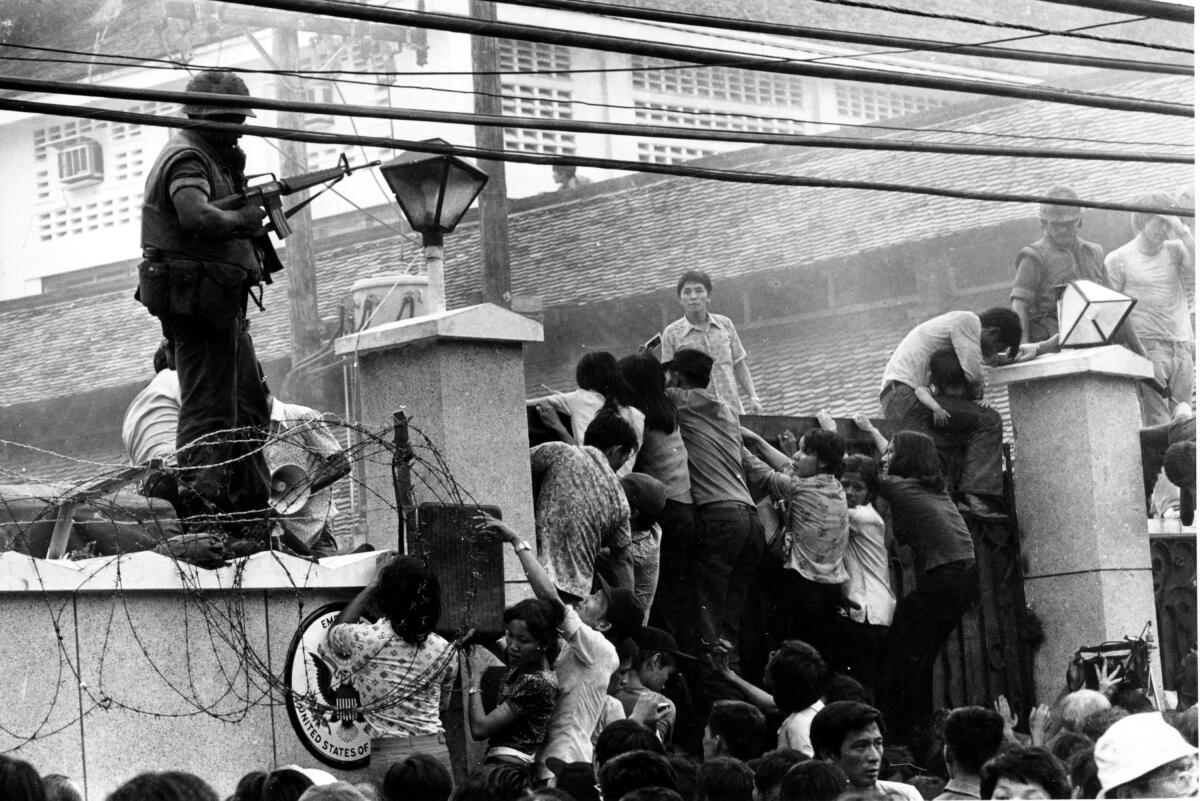Letters to the Editor: Did Jane Fonda save American lives by visiting North Vietnam in 1972?

- Share via
To the editor: Jane Fonda’s actions arguably triggered the end of the Vietnam War. (“Why L.A. County’s ‘Jane Fonda Day’ declaration was so astoundingly insensitive,” Opinion, May 9)
As a Vietnam War era infantry officer whose company was on orders to go to Vietnam for the purpose of drawing Viet Cong fighters out of hiding, my life expectancy, as a general later told me, was about 12 days.
Then Fonda was photographed on a North Vietnamese antiaircraft gun in 1972, and all hell broke loose. Waiting in the airport to board my flight to Vietnam, out of nowhere came orders to return to our base.
I know the 100-plus members of my company and I were allowed to live because of Fonda’s courage. About how many more American soldiers were spared the battlefield, I can only speculate.
I am grateful to Fonda every day of my life.
Frank Arentowicz, Los Angeles
..
To the editor: I flew 34 combat missions into Vietnam in 1972. When Fonda celebrated the North Vietnamese antiaircraft crews, posing for a picture with their guns that July, I was angry. When she posed with American prisoners of war, captive in Hanoi, I began to hate her.
For more than 15 years, that hate was never very far out of my mind. I cultivated it. It ate me up.
Then, in 1988, she publicly apologized. Something clicked in me that let me understand that all of the energy I’d invested keeping my hate alive had been worse than wasted.
I forgave her. I stopped hating. It was like a breath of fresh air.
Recently, I read in The Times that L.A. County had designated April 30 “Jane Fonda Day.” The U.S. was driven out of Saigon on April 30, 1975. It is the day when the South Vietnamese community in the U.S. remembers the loss of their homeland.
Now I know what people mean when they say that while forgiving is easy, forgetting is not.
Mark Janssen, Yorba Linda
..
To the editor: Many Vietnamese ex-pats, including Assemblyman Tri Ta (R-Westminster), don’t understand the history of Vietnam. The fall of Saigon and the South Vietnamese government in 1975 was the direct result of the American meddling in Vietnam.
Being a small country, Vietnam was repeatedly invaded, including by Japanese forces in World War II. After the war, Vietnam could have achieved independence were it not for then-President Harry S. Truman, who backed French control of the country.
After the defeat of the French, the major players in the region decided to partition Vietnam. China never wanted a strong, unified Vietnam, and the U.S. wanted to prevent the expansion of communism.
The fabrication of the second Gulf of Tonkin incident in 1964 ensured the escalation of the American involvement in Vietnam, with tragic consequences.
The Vietnam War — or rather the American war — was a colossal miscalculation and failure of the U.S. government and military. It caused millions of Vietnamese deaths and the destruction of the country.
Son Trinh, Long Beach







